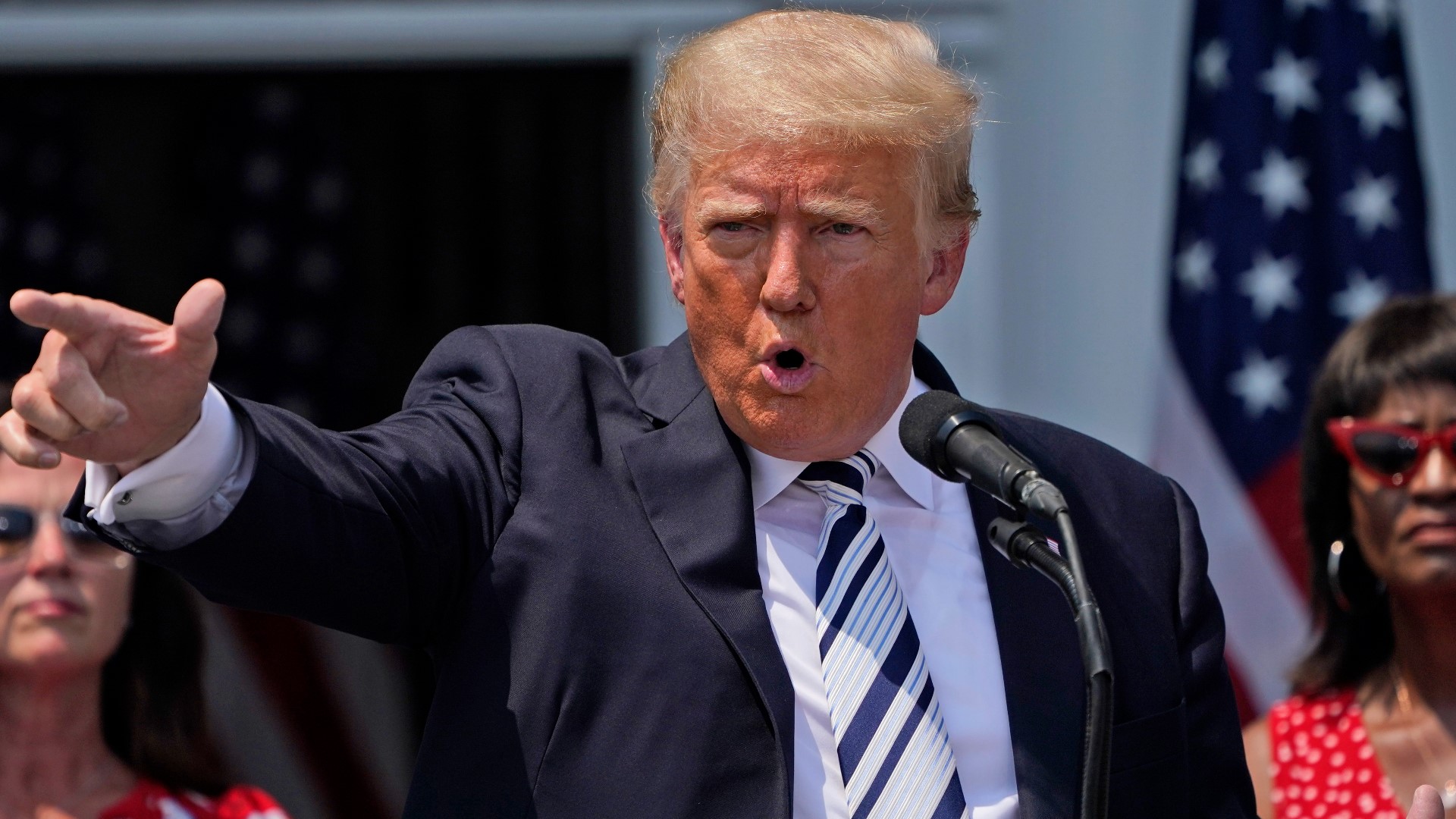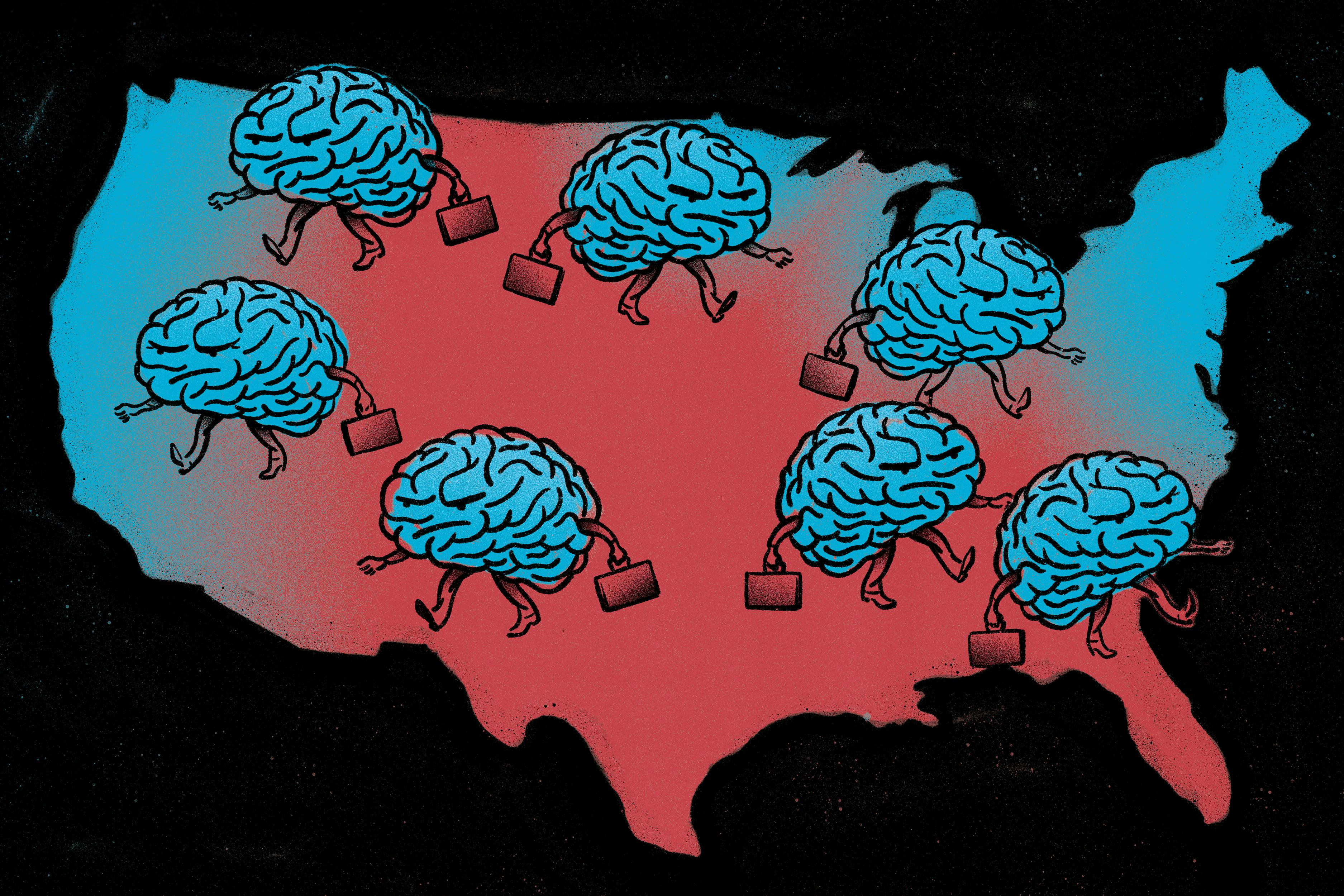How Trump’s Strict Measures Threaten the Future of American Scientific Research

“Trump’s administration has slashed research funding and halted broad swathes of federally funded science.”
Since Donald Trump officially took office last January, his administration has implemented sweeping cuts to federal spending, raising concerns about the fate of scientific research in the country.
The Trump administration is waging an unprecedented campaign against higher education in the United States, forcing major universities to accede to its demands or risk investigations and the loss of millions of dollars in federal funds.
Amid the uncertainty, several US academic institutions in recent weeks have announced a hiring freeze and a reduction in the number of graduate student positions.
With growing concern among researchers in the U.S. about the future of grants and other forms of support for their work, several European universities have launched initiatives to attract some talent.
Last month, the Chinese government said it would expand its efforts to attract researchers affected by Trump's funding cuts.
Australia is also looking at fast-track visas for the best and brightest, and the most beckoning destination will likely be Canada, given its proximity to the U.S. in terms of both distance and culture.
Unprecedented Measures
More than 75% of scientists are now considering leaving the U.S. following the disruptions prompted by Trump, according to a survey of more than 1,600 scientists published in the journal Nature in late March.
The journal noted that this trend was particularly pronounced among early-career researchers.
This panic in the scientific community coincides with Donald Trump's unprecedented crackdown on education and research.
Trump's administration has slashed research funding and halted broad swathes of federally funded science, under a government cuts initiative led by billionaire Elon Musk.
Tens of thousands of federal employees, including many scientists, have been fired and rehired following a court order, with threats of more mass firings to come.
Immigration crackdowns and battles over academic freedom have left researchers reeling as uncertainty and disruption permeate all aspects of the US research enterprise.
Some researchers and students have already been deported, such as Lebanese physician Rasha Alawieh, while others have been arrested, such as Turkish student Rumeysa Ozturk, who was arrested earlier this month for participating in pro-Palestine demonstrations.
Last month, the Trump administration rescinded a National Institutes of Health (NIH) policy designed to protect federal scientists from political interference.
It also issued significant cuts to overhead and indirect costs paid to NIH-funded projects in the U.S.
On February 14, hundreds of thousands of employees at agencies of the Department of Health and Human Services, such as the U.S. Food and Drug Administration, received notices of immediate termination.
The Trump administration has also attempted to freeze federal grant payments, announcing that it will review and possibly cancel any grant that mentions conditions it deems indicative of diversity, equity, and inclusion programs.
On March 10, NASA abruptly closed several science offices, resulting in 23 layoffs.
On March 20, Trump signed an executive order directing the Secretary of Education to begin dismantling the Department of Education.
Trump also decided to withdraw the U.S. from the World Health Organization (WHO).

Harmful Actions
Over the past eight decades, the U.S. has invested heavily in scientific research, and government officials from both sides of the political divide have agreed to invest in science.
Now, just two months into the second Trump administration, scientists fear that this long-standing consensus is unraveling.
On March 3, the Union of Concerned Scientists and 48 scientific societies issued a joint letter to Congress calling on lawmakers to protect taxpayer-funded research.
The letter noted that the Trump administration's actions have already caused significant harm to science in the country, jeopardizing the health and safety of communities.
On March 7, thousands of researchers and science supporters protested in cities across the US against the Trump administration's policies.
They were inspired by the ‘March for Science’ movement, inaugurated during President Trump's first term in office between 2017-2021.
Following the Trump administration's arrests of several scientists, several organizations representing university faculty members filed a lawsuit on March 25 challenging these actions, which have led to the imprisonment of several student researchers and the disappearance of others.
Trump paved the way for the recent arrests by signing an executive order on January 30 calling on US immigration officials to deport students sympathetic to Hamas.
Many students and professors reject this accusation, saying they were merely opposing Israel's war on Gaza, which has killed tens of thousands of Palestinians.
US Secretary of State Marco Rubio confirmed at a press conference that his agency had revoked the visas of at least 300 students, with more likely to follow.
Some universities have warned international students against traveling for fear of arrest, while many have already begun deleting their social media accounts and removing their names from student activist websites.
With declining government support and rising prices for laboratory equipment and specialized scientific instruments, the number of scientists is expected to decline, potentially hindering innovation.
According to several people, this might be the biggest exodus of scientific brains since World War II.

Brain Drain
For its part, Europe has begun exploiting the current situation to attempt to present itself as an alternative that respects freedom of education and research.
EU countries are competing to attract scientists and researchers fleeing Trump's crackdown on the scientific and academic sector in the U.S.
Several universities across Europe have been quick to seize the opportunity, announcing recruitment plans targeting American talent.
The University of Cambridge in Britain is among a group of leading research institutions seeking to attract experts in fields from biomedicine to artificial intelligence.
Belgium's sister universities Vrije Universiteit Brussel and Université Libre de Bruxelles have launched a scheme encouraging U.S.-based researchers to apply for 36 postdoctoral positions.
Aix Marseille University in France said it had received interest from 120 researchers at institutions in the U.S., including NASA and Stanford, for a €15-million 'safe space for science' programme launched on March 7.
The initiative aims to attract U.S. staff from fields including health, epidemiology, and climate change.
In turn, the governor of the Spanish region of Catalonia, Salvador Illa, unveiled a €30 million regional employment program called ‘the Catalan Talent Bridge’, which will fund positions for 78 American researchers at universities and high-tech research institutions.
In the Netherlands, the government wants to establish a fund to attract top foreign scientists and bolster the EU's 'strategic autonomy' aims, Education Minister Eppo Bruins said in a letter to parliament on 20 March.
In Germany, as part of coalition talks for a new government, conservatives and Social Democrats have drawn up plans to lure up to 1,000 researchers.
The Max Planck Society in Germany has recently seen a surge in applications from American researchers, and the organization is already expanding its programs to accommodate them.

A letter signed in March by 13 European countries, including France, Germany, and Spain, urged the EU Commission to move fast to attract academic talent.
The European Research Council, an EU body that finances scientific work, told Reuters it would double the relocation budget for funding researchers moving to the EU to 2 million euros per applicant.
For decades, Europe has lagged far behind the U.S. on investment in its seats of higher learning.
Total expenditure on research and development in the EU among businesses, governments, universities, and private non-profit organizations in 2023 was 381 billion euros.
That same year, total research and experimental development in the U.S. was estimated at $940 billion.










